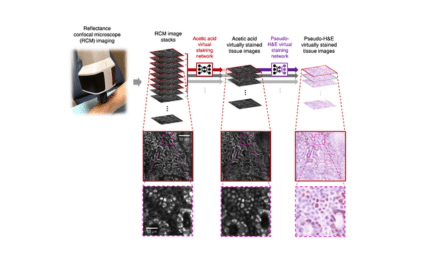FDA has granted premarket notification (510(k)) clearance to the Euroimmun anti-tissue transglutaminase (tTG) enzyme-linked immunosorbent assay (ELISA) from PerkinElmer Inc, Waltham, Mass. The test system is designed to help clinicians confirm or exclude a diagnosis of celiac disease.
When people with celiac disease eat foods containing gluten, a reaction from their immune systems results in elevated levels of certain antibodies in their blood. The antibodies are directed against gluten but also attack tTG, the body’s own gluten-processing enzyme, located in the small intestine. Such an autoimmune response explains why these antibodies are considered the most important serological markers for celiac disease.
The Euroimmun anti-tissue transglutaminase ELISA helps clinical laboratories screen patients more accurately by determining and quantifying immunoglobulin class A (IgA) and class G (IgG) anti-tTG antibodies.
“Greater diagnostic accuracy is needed to ensure patients receive proper treatment and prevent further health complications,” says Wolfgang Schlumberger, PhD, vice chairman of Euroimmun AG, Lübeck, Germany, developer of the anti-tTG ELISA. “Our comprehensive portfolio for autoantibody detection in celiac disease, combined with a wide range of automated workflow solutions, provides the sensitivity and specificity necessary for clinical laboratories to reliably identify those living with this chronic autoimmune disorder, and expedite the time to diagnosis.”
Euroimmun, a PerkinElmer company, is widely recognized as a global leader in autoimmune testing and an emerging force in infectious disease and allergy testing. Its expertise and capabilities extend across biochemistry, cell biology, histology, immunology, and molecular biology.
As part of its autoantibody diagnostics portfolio, PerkinElmer also offers the Euroimmun anti-endomysium immunofluorescent assay kit, and the Euroimmun anti-deaminated gliadin ELISA kit.
Using the anti-tTG IgA ELISA and anti-GAF-3X IgG ELISA together provides increased diagnostic accuracy for celiac disease and allows for the identification of patients with selective IgA deficiency, who are otherwise missed by IgA-only assays.
For further information, visit PerkinElmer Inc.





